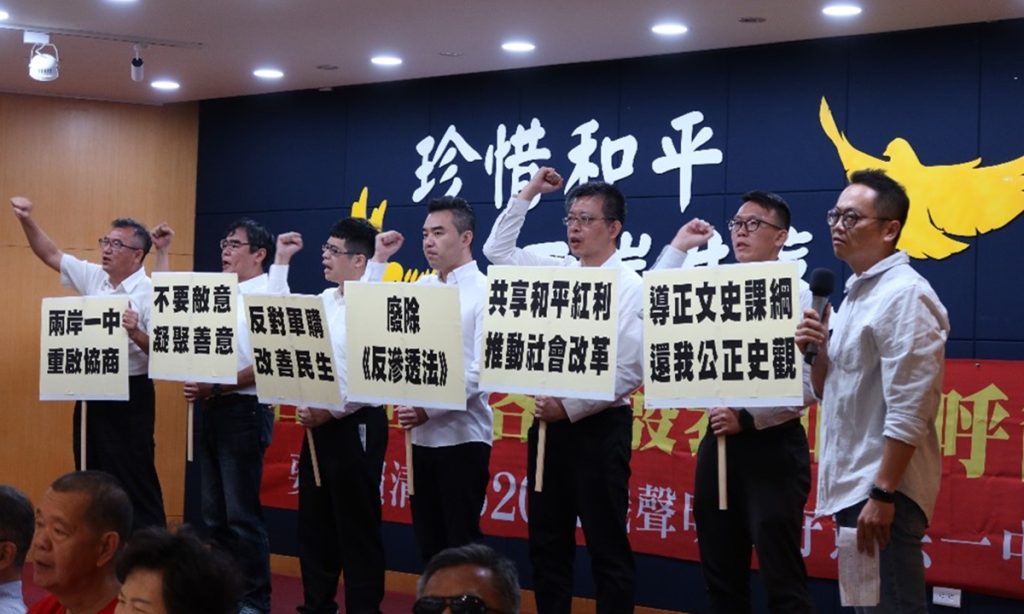Political, civilian groups in Taiwan urge DPP authorities to adhere to one-China principle

Multiple political and civilian groups on Taiwan island on Tuesday initiated a peace declaration signing activity, urging the Democratic Progressive Party (DPP) authorities to adhere to the one-China principle, and stop compromising cross-Straits relations or forcing the people on the island to face the existential choice between war and peace.
The Cross-Strait Peaceful Development Forum, together with more than 60 pro-reunification groups, including the Labor Party of Taiwan, the Reunification Alliance Party, and the Blue Sky Action Alliance, organized the Tuesday activity.
The initiators of the Tuesday activity urged Lai Ching-te, who will take office as the regional leader of the Taiwan island on May 20, to adhere to the one-China principle, respond to the majority of Taiwan people's advocacy for peace, take the window of goodwill opened by the mainland, and seize the opportunity to defuse the cross-Straits crisis, according to a release sent to the Global Times by the initiators.
The DPP authorities' eight-year policy of hostility toward the mainland has continuously worsened cross-Straits relations, with the situation across the Taiwan Straits becoming increasingly tense, forcing the Taiwan people to face the existential choice between war or peace, stability or turmoil, prosperity or decline, Wang Wu-lang, secretary-general of the Cross-Straits Peace Forum, told the Global Times on Tuesday.
With the situation of the Taiwan Straits becoming more perilous and people feeling insecure, Lai won't easily abandon the stance and advocacy for "Taiwan independence," said Wang, noting that his stance completely disregards the survival and development interest of the vast majority of the Taiwan people.
The DPP authorities may continue their strategy of rejecting reunification and seeking independence by relying on the US to pursue political gains, Wang said, noting that Lai may taunt the "promises" which the US and some Western countries made to Taiwan to continue to fool the public.
Aside from urging Lai to adhere to the one-China principle in his speech on May 20, the initiators of the Tuesday activity also put forward six appeals to urge the DPP authorities to resume various aspects of social, economic, and cultural exchanges and cooperation across the Straits, safeguard the legitimate rights of people from both sides of the Straits to communicate and interact.
They also oppose any arms purchases and cross-Straits policies that treat the mainland as a hostile entity, and required the DPP authorities to provide Taiwan's youth with a fair historical perspective and an environment conducive to cross-Straits peace and development.
Lai and those who seek "Taiwan independence" are going against the historical trend of the rejuvenation of the Chinese nation, and their path will not succeed, said Wang, calling for Taiwan people to unite and promote cross-Straits stability.